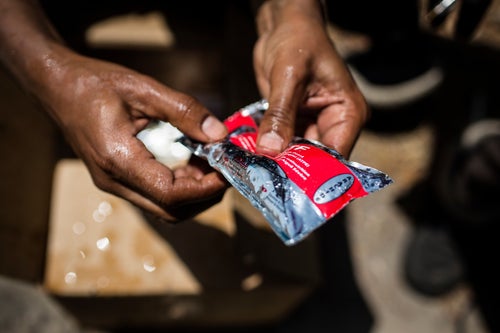Caught in the grip of a decade-long conflict, an entire generation is fighting for survival. Yemen’s children have been robbed of their childhoods and their futures shattered as they endure a deepening crisis of malnutrition, disease outbreaks, and displacement.
Considered the poorest country in the Middle East, families in Yemen are struggling to afford life’s essentials: food, water and vital health services. Tragically, half of all children under five are acutely malnourished. Among them, over 537,000 suffer from severe acute malnutrition (SAM) – a condition that is agonising, life-threatening, yet entirely preventable. Malnutrition weakens immune systems, stunts growth and development. In Yemen, it is far more than a health crisis – it is a death sentence for thousands.
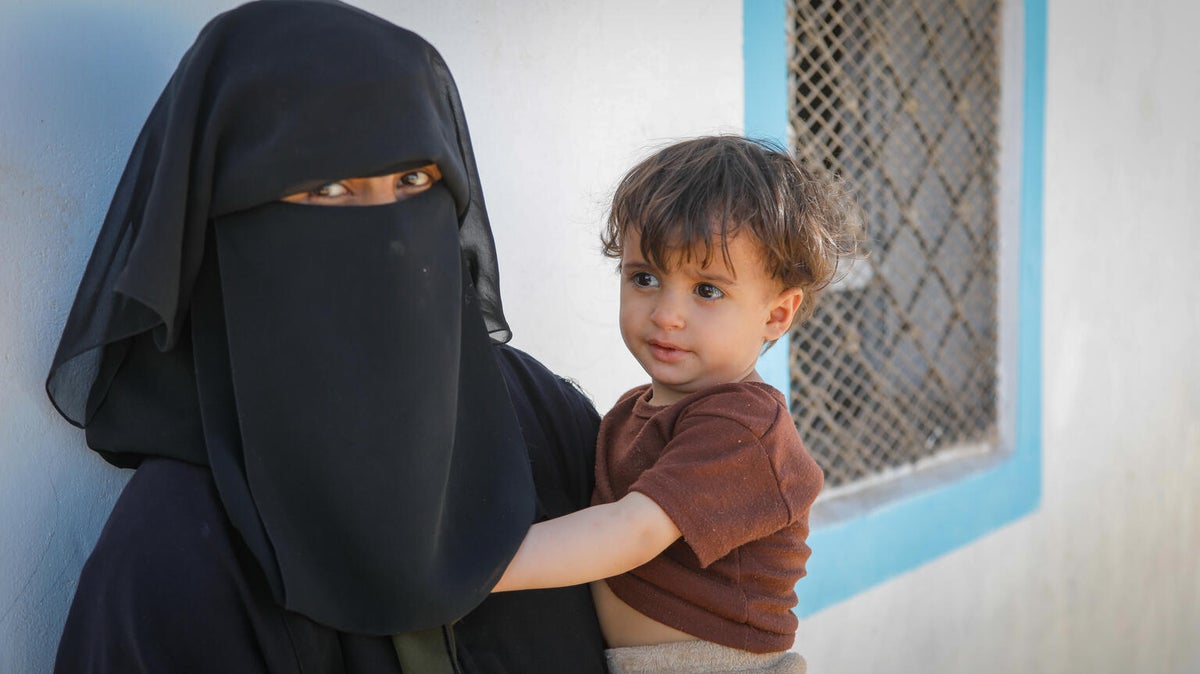
A photographer's view of the malnutrition crisis
"When I photograph children in hospital, I remember the time before the conflict, when I was taking photos of children, happy and playing... when I started taking photos of malnourished children... for me, it was a shock to know that malnutrition can lead to death."
What makes the situation even more devastating is that it’s a man-made crisis. More than half of the population depends on humanitarian support for survival. Since 2015, food prices have soared by 300 per cent, and critical ports and roads – lifelines for food and medicine – have been damaged or blocked.
Despite these incredibly difficult and often dangerous challenges, and with no end to the conflict in sight, UNICEF remains on the ground, delivering lifesaving support for children.
UNICEF-supported mobile health clinics are a lifeline amid the crisis
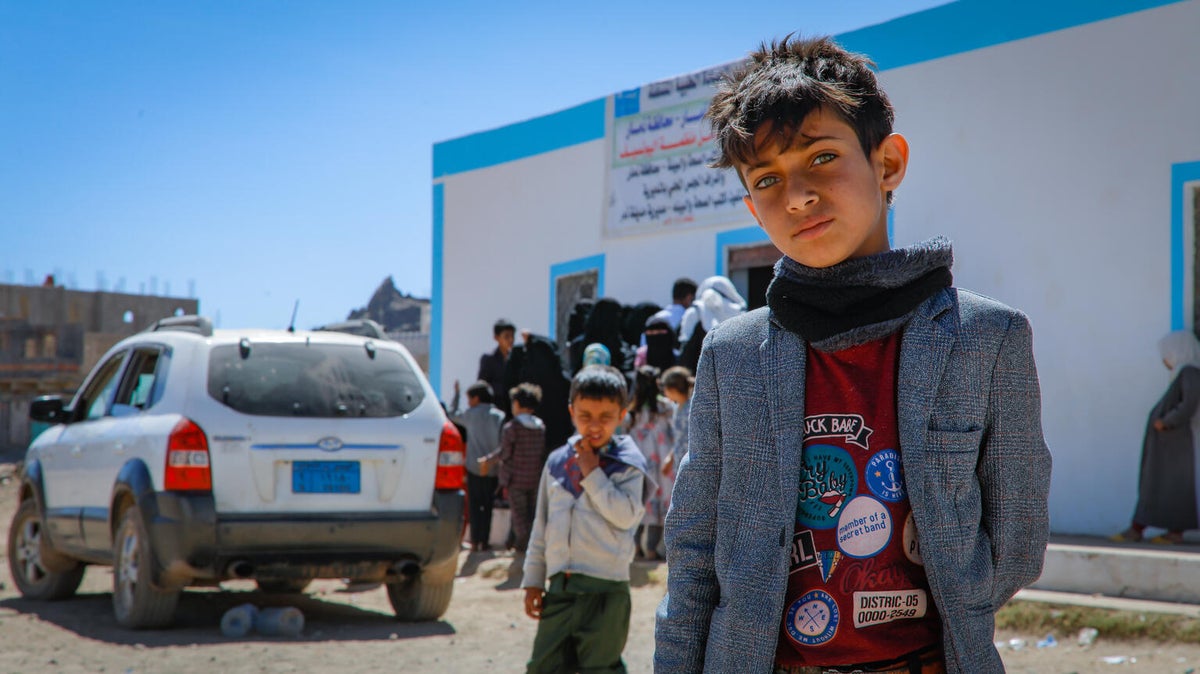
Mobile health clinics have become a lifeline for families in remote communities where mothers used to walk up to 12 kilometres to access healthcare while other families had to do without. The UNICEF-supported mobile health clinics focus on screening and treating malnutrition, providing vaccines and improving maternal health.

A 16-year-old mother brought her three-year-old son to the mobile health clinic for malnutrition treatment and to receive essential vaccinations. This young mother is one of seven siblings, with her father supporting the entire family by selling water - a vivid snapshot of the everyday struggles faced by millions in Yemen.
Without intervention, malnourished children will lose their lives silently, long before their time. Even those who survive face lifelong consequences – impaired cognitive development, chronic disease, and lost economic potential. Consistent access to healthcare and essential supplies is crucial to preventing these devastating outcomes.
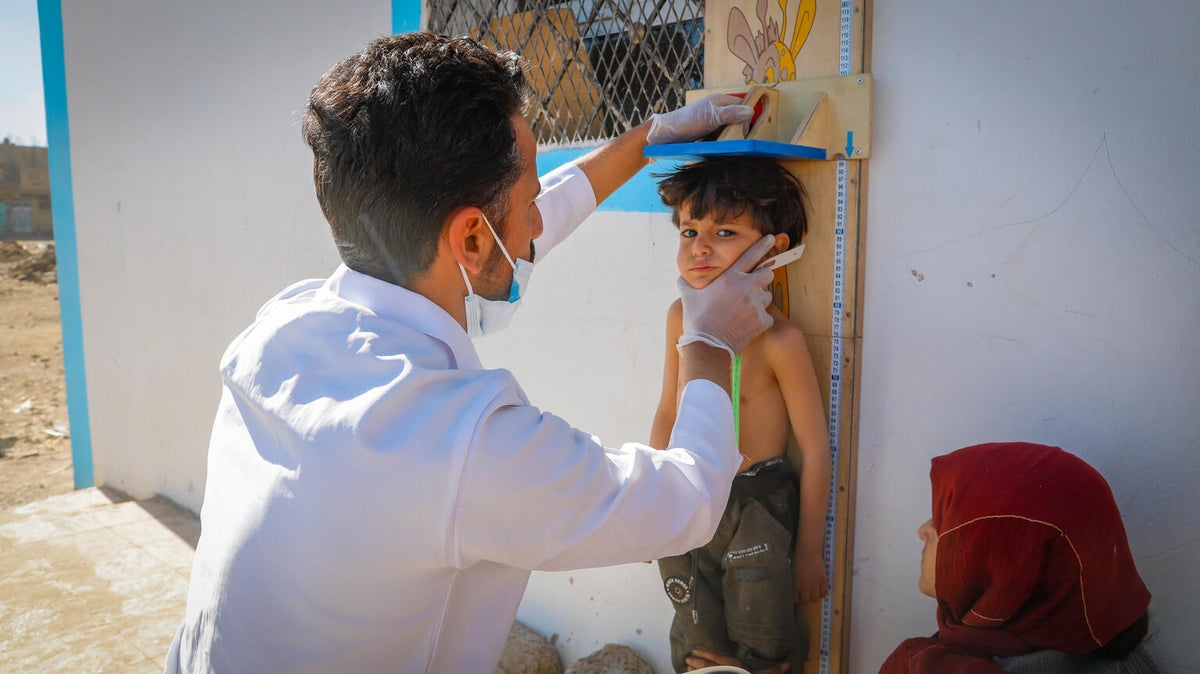
Among the many challenges, healthcare workers in mobile clinics face misinformation, distrust, and a lack of awareness of vaccines and nutrition. Schools do not allow clinics to enter, and families often resist vaccinations. When visiting remote communities, healthcare workers provide critical education about the importance of vaccines and nutrition to help break down barriers.
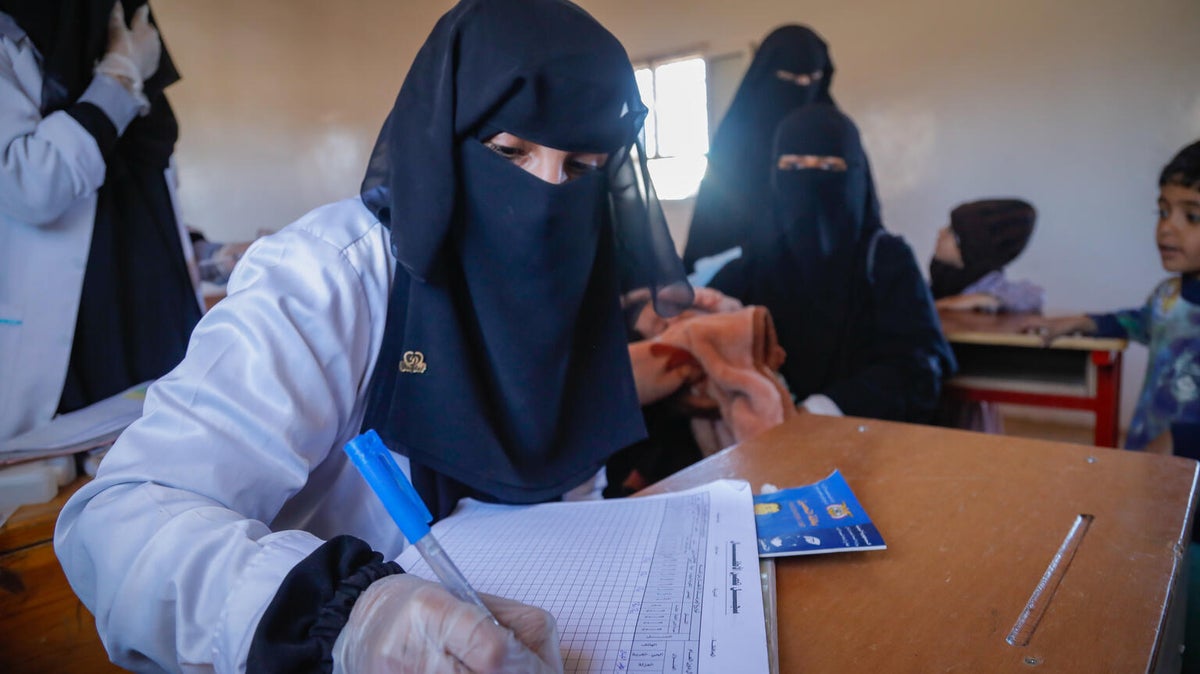
Female doctors play a pivotal role in these clinics, improving nutrition, reproductive health, and maternity and postpartum services for pregnant women and new mothers.
"The mother is half of society, when the mother is well, society is well."
In 2025, UNICEF continues to support 3,200 health facilities, 70 mobile teams, and 42,000 community health workers across Yemen. But for this lifesaving work to continue, we need help from people like you. Without this support, 7.6 million people risk losing access to primary healthcare. Without urgent resources, we cannot sustain even the minimal services UNICEF is able to provide in the face of growing needs.
Together, we can make a difference for children in Yemen.
Children in Emergencies
UNICEF is providing urgent assistance to children. But we can’t do it alone. We need your help today.
Related articles
Stay up-to-date on UNICEF's work in Australia and around the world













